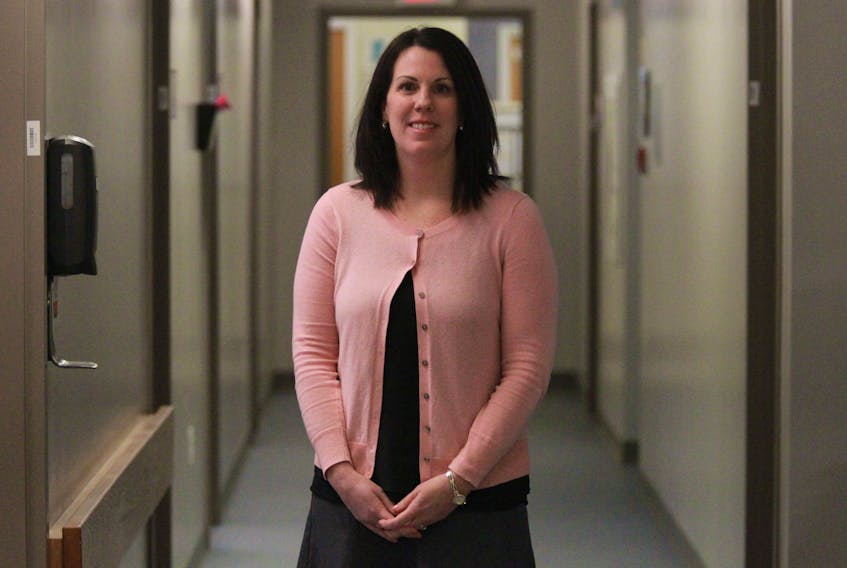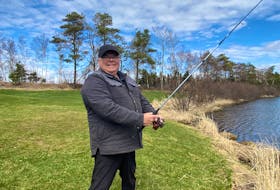An overhaul of mental health and addictions services for young people has slashed wait times and improved quality of care, IWK Health Centre officials say.
Over the past eight years, managers and staff have worked hard to improve access to services and levels of care, said Dr. Sharon Clark, the advanced practice leader for the IWK’s mental health and addictions program.
“In 2012 people were waiting upwards of 12 months (for their first appointment) and now people are waiting for four weeks for the same service,” Clark said in an interview Monday afternoon. “And clients that need urgent care are being seen in four days.”
Clark credited the improvements to a mental health care delivery approach called “choice and partnership,” which was implemented at the IWK in 2012 and subsequently at Nova Scotia Health Authority facilities
This approach emphasizes collaboration with the patient and family in making choices about their treatment and ensuring they are partnered with the appropriate clinicians and services.
In a 2017 report, Nova Scotia’s auditor general said there has been inconsistency in how the choice and partnership approach had been implemented across the province. Michael Pickup also said the IWK and the NSHA had not adequately defined ways to measure its outcomes.
But Clark said the approach has been successful at the IWK.
“We spent time essentially reorganizing our services and thinking about what it's like for families to come to mental health services and how can we best organize our programs in a way that meets families’ needs,” she said.
“So that meant changes to how our central intake system works, it looked at how we reorganized our outpatient team. … I think about it as being really strong three-lane highways where most people can get the care that they need for their mental health problems or disorders and thinking then about how we have the off-ramp for particular service areas that families need, but we start with what works for most people.”
That “off-ramp” could lead patients and their families to other organizations in the community that offer mental health and addiction services for youth, such as the McPhee Centre for Creative Learning in Dartmouth and Phoenix House in Halifax.
“It’s really important that we get the right fit of intervention,” Clark said. “And by that mean I mean, like the frequency of seeing someone, the intensity of the commitment of care, because we want to start in a stepped level so we start with what people require now and then we can add in more as we go along the way.”
Compared to eight years ago, the patient and their families have a much better idea of what to expect from the health-care system and what the best treatment plan will be for their particular case, Clark said.
“At the end of that first appointment, which we call our choice appointment, families are leaving with documentation in their hands. So they have a picture of what we talked about, they know what their goals are, they've developed them with us.”
More complex cases
Based on feedback throughout the assessment and treatment process, Clark said 98 per cent of patients and families report satisfaction in the quality of care.
The first contact with IWK service providers is with central referral patient navigators like Karen Carey, who joined Clark with the interview that was arranged by the IWK on Monday afternoon.
Carey, who has been in the role since 2015, said the department handles about 2,000 calls throughout the year.
Over the past five years, “the complexity of calls have gone up, the complexity of struggles and challenges that these children and youth are presenting have definitely gone up and we’re receiving, you know, multiple issues regarding housing and poverty and family dynamics.”
Carey said her first priority in speaking with young people with mental health or addictions challenges is determining whether they’re in crisis.
If there’s any indication their lives are in danger, she sends her clients to the IWK’s emergency department for treatment by the hospital’s emergency mental health team.
“Central referral would do an intake that helps guide the direction that the family goes to,” Carey said. “So do they go to the choice appointment, do they need to come into urgent services with our urgent care team or, as Sharon was talking about, perhaps it is a community resource, so we're the ones that collect the information to make those decisions.”
The mother of an IWK patient, Suzanne MacDonald, said in a news release issued by the IWK that the staff were “absolutely wonderful."
“They were kind, caring, and professional. I was invited into a team-based, focused approach, that while sympathetic to my child's condition, affects it had on our family, they were first of mind to support my daughter's diagnosis and treatment plan. Nursing staff demonstrated leadership in managing my child's illness while providing treatment during some very stressful days."
RELATED









